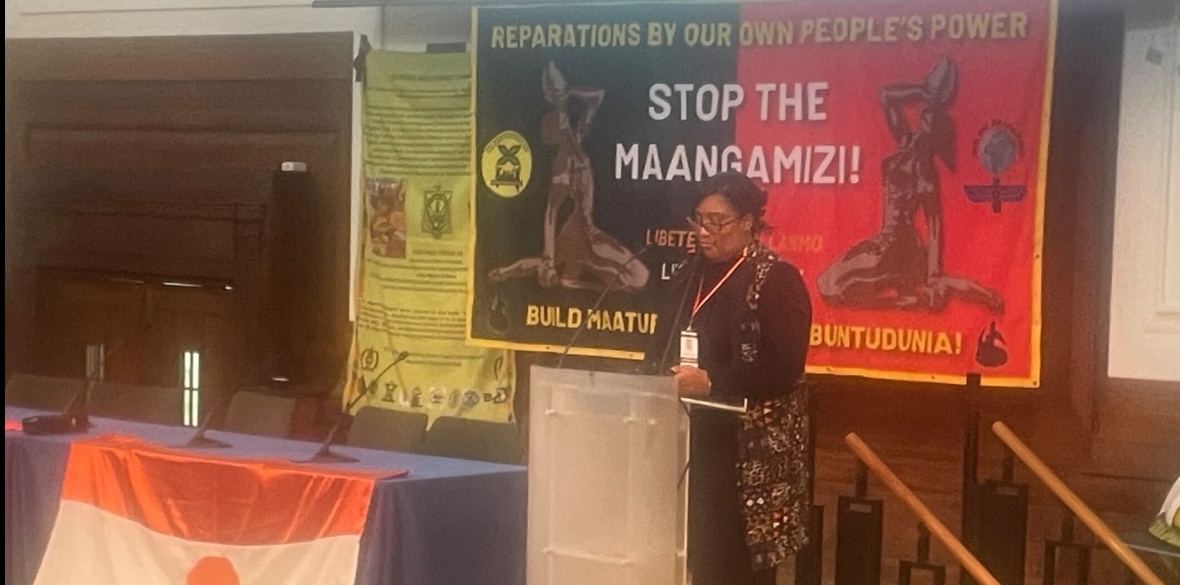This is the last article you can read this month
You can read more article this month
You can read more articles this month
Sorry your limit is up for this month
Reset on:
Please help support the Morning Star by subscribing here
HUNDREDS of activists gathered in central London on Saturday to chart a pathway towards reparative justice for the legacy of the trafficking and enslavement of peoples of African descent.
The all-party parliamentary group (APPG) for Afrikan reparations brought together activists, campaigns and institutions for two days over October 21 to 22 in its first conference.
APPG chairwoman Streatham Labour MP Bell Ribeiro-Addy opened the conference by paying tribute to the trailblazing work of the late Bernie Grant, who represented Tottenham for Labour and “was the first MP to stand up in Parliament to demand an apology and reparative justice.
“We mustn’t forget those who have fought for reparative justice long before I was born and we are here today to make sure that as the voices for reparations grow louder that the voices of the grass roots are not drowned out.”
Joining the opening plenary online, Professor Verene Shepherd from the Centre for Reparations Research at the University of the West Indies, reminded the conference that education was key to the fight for reparative justice.
She said: “Education is preparation for reparation.”
Professor Kimani Nehusi said that the work towards reparations must also be “an act of self-liberation” where we “develop a better understanding of ourselves as people of African descent.”
He said: “Our objective must be nothing less than African liberation and no one else must be allowed to colonise our struggle.”
Actor, playwright and Young Vic Theatre artistic director Kwame Kwei-Armah said that it was “important to make the campaign for reparations fashionable, progressive as well as revolutionary.”
Top human rights lawyer Jacqueline Mckenzie, from Leigh Day chambers, called the transatlantic enslavement of Africans “the biggest crime against humanity.”
Ms Mckenzie will be working as an adviser to the joint commission on reparations set up by Caribbean nations and the African Union.
In a powerful address, Esther Stanford-Xosei from the Stop Maangamizi campaign, who is also part of the APPG Secretariat, said: “There has been an attempt to kill the memory of what happened during the transatlantic trade in African human beings.
“There has also been an erasure of the past work towards justice. This includes a recognition that this space has always been a pan-African space.”
She said: “We are engaged in a battle of ideas and in that fight we are accountable to our ancestors.
“We must remember the words of leading African revolutionary Amilcar Cabral that in that fight we must ‘claim no easy victories’.”










